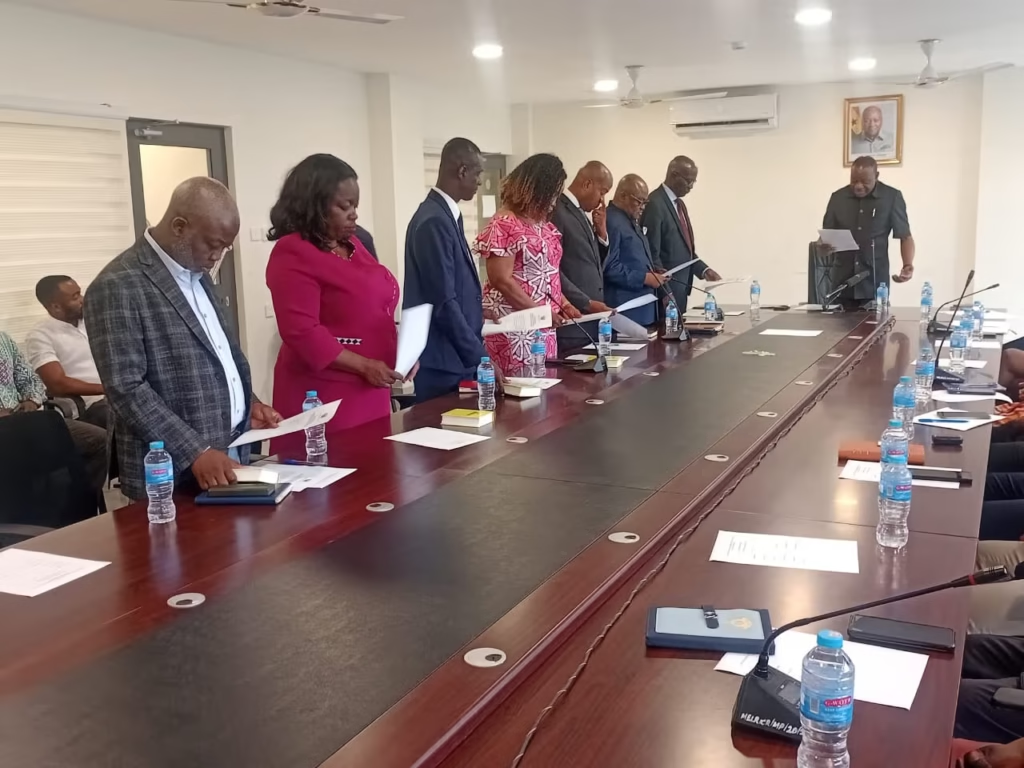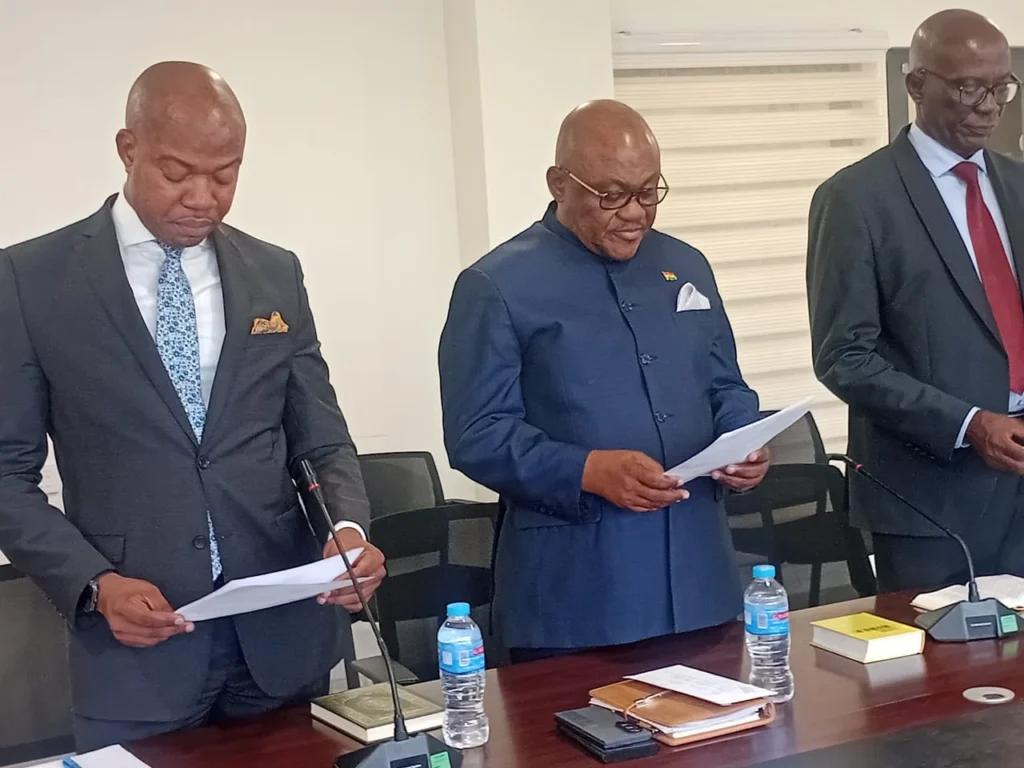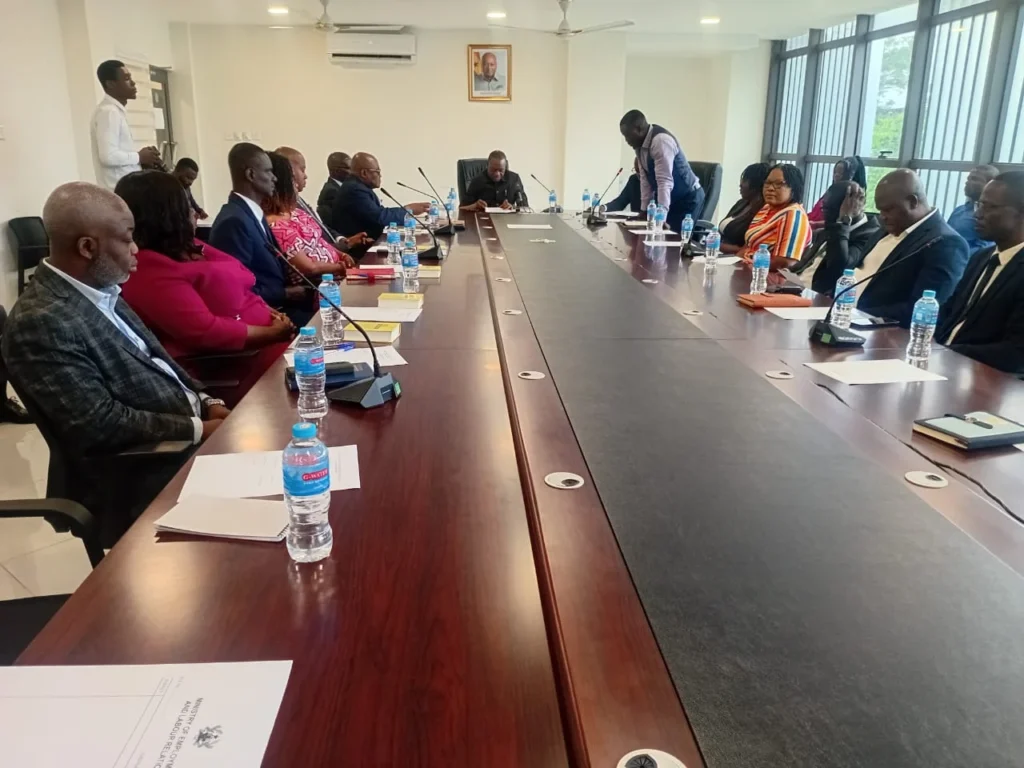The newly inaugurated Board of the Fair Wages and Salaries Commission (FWSC) has been given a dual mandate by the Minister for Labour, Jobs, and Employment, Dr. Rashid Pelpuo. They are to drastically reduce labour unrest and to steer the Commission’s transformation into an Independent Emolument Commission by the end of 2025.
Speaking at a brief ceremony in Accra, Dr. Pelpuo laid out clear expectations for the new team, insisting that their work will be central to restoring stability in Ghana’s public sector compensation system.
According to Dr. Pelpuo, the transition to an Independent Emolument Commission is not only a government priority but also a matter of personal commitment for President John Dramani Mahama.
The move is in line with recommendations from the Constitutional Review Commission and is intended to bring long-overdue equity, fairness and clarity to how public sector wages and salaries are determined..

“This is very important,” he said, emphasising that the government considers the policy reform essential for sustainable governance and social justice within the country’s public service, hence driving its establishment.
The Minister’s charge to the Board came against a backdrop of growing tensions between government and labour unions, many of whom have expressed dissatisfaction with existing pay structures. Dr. Pelpuo urged the Board to act swiftly to stem the tide of industrial strikes and create a new atmosphere of trust and accountability.
“We hope to wake up one day to a public sector free of agitations. You must streamline things in such a way that labour-related concerns are addressed proactively and fairly”
Dr. Rashid Pelpuo, Minister for Labour, Jobs, and Employment
Dr. Pelpuo acknowledged that the task ahead is daunting but insisted that the stakes were too high for “delays or indecision.” He called for deliberate action and consistent communication to bridge the long-standing rift between government agencies and organised labour.

Experienced Leadership
The newly constituted Board is chaired by Dr. George Graham, a seasoned expert in labour relations and wage administration.
“It is a herculean task for you to support the Commission to achieve its national goal. Fortunately, the Commission is led by no less a person than Dr. George Graham, an experienced hand in labour and wage matters”
Dr. Rashid Pelpuo, Minister for Labour, Jobs, and Employment
His leadership, according to the Minister, provides a strong foundation for success as the Commission navigates a crucial moment in its institutional evolution.
The Minister’s confidence in Dr. Graham was echoed in his appeal to other board members to offer their full support in reshaping public service pay management. He noted that the transformation to an Emolument Commission must be guided by transparency, equity, and strategic foresight.

With public sector unions increasing their demands for better compensation, the newly inaugurated Board is expected to design a framework that balances fiscal responsibility with employee welfare. The task ahead includes “resolving pay disparities, building systems of accountability, and proposing sustainable reforms.”
The Ministry for Labour, Jobs, and Employment has indicated that the Emolument Commission, once operational, will act as an independent and neutral institution capable of ending decades of politically-influenced wage decisions.
This, according to the government, is key to eliminating annual strike cycles and restoring faith in the public sector payroll system.
As the Board takes office, stakeholders from both government and labour are watching closely, hopeful that its work will set Ghana on a new path of labour peace and fair wage governance.























